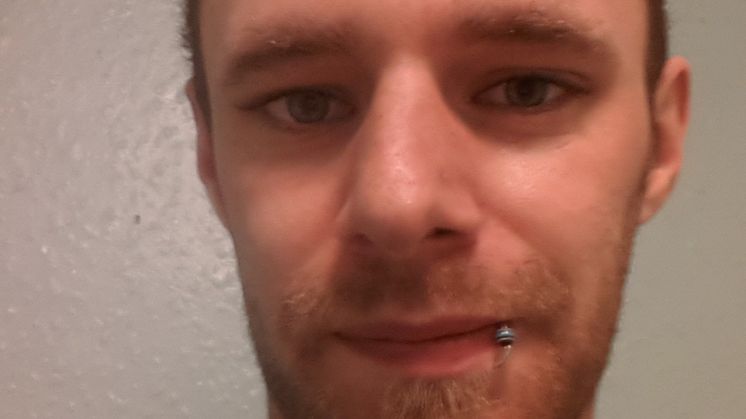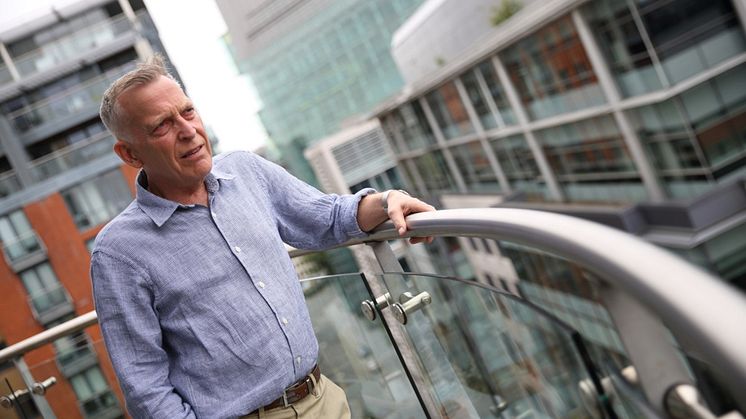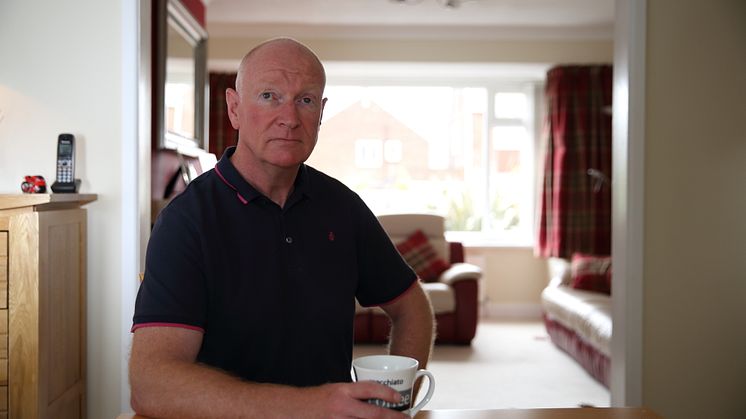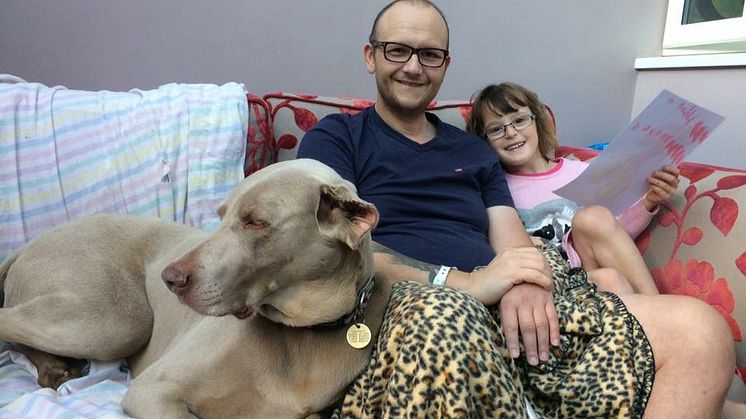
Press release -
A million stroke survivors battling mental health problems
Almost a million people who have survived a stroke have developed at least one mental health problem, according to new findings(i) published today by the Stroke Association.
There are currently over 1.2 million stroke survivors in the UK, and more than three quarters (78%) face a battle with depression, anxiety, a lack of confidence, mood swings or even suicidal thoughts. Yet worryingly, over a quarter (27%) of people say they have not received enough emotional support to help rebuild their lives.
The Lived Experience of Stroke report is the Stroke Association’s largest ever survey of people affected by stroke, with over 11,000 people responding(i). The first chapter demonstrates how the hidden effects of stroke affect almost everyone, yet can often go unnoticed by people in a stroke survivor’s life.
The findings reveal the real impact that stroke has on survivors’ mental health, with many people having to adapt to a ‘new normal’ while still living with the fear of having another stroke.
While anxiety and fear(ii) top the list of emotions that have the highest impact within the first six months of a stroke, most respondents said these effects can improve over time. In fact, more than half (56%) of these stroke survivors report now ‘feeling positive emotions’.
However, one in six (16%)(iii) people who have survived a stroke reported having suicidal thoughts, and a quarter (25%) of those were parents with children in their households. The findings reveal that among those survivors who felt this way, nine out of ten (89%) people also reported that their personal relationships had been negatively impacted since their stroke.
The charity’s latest findings demonstrate how stroke changes lives in an instant. As a result, roles within relationships are turned upside down. Overnight, a partner becomes a carer. A breadwinner becomes jobless.
Juliet Bouverie, Chief Executive of the Stroke Association, comments: “This report exposes the true devastation stroke can bring. These figures are extremely concerning, and show a desperate need for support to cope with the hidden, and often overlooked, effects of stroke. Far too many lives have been destroyed by stroke, and no-one should be left feeling suicidal. The evidence highlights how important it is that families, friends and health professionals who support stroke survivors understand what it means to live with these ‘hidden effects’, ask how people are feeling, and provide appropriate emotional and psychological support.”
Chef and father of one Paul Baker, 33 from Blackpool, had a stroke in November 2018, which left him with depression, and as a result his relationship broke down.
Paul’s stroke took away the movement in his left side and he needed to use a wheelchair after his stroke. Now with physiotherapy twice a week and sheer determination, he only uses one stick for walking.
After his stroke, Paul battled with depression. He said: “I felt so down because I couldn’t do things with my three year old daughter Lily any more. She doesn’t understand what I’ve been through but she helps me so much and nurses me better. It was hard on the relationship between myself and my ex-partner, Lily’s mum. I couldn’t work and she struggled to keep up with hours at her work place. She lost her job and the impact on our finances was very stressful. I couldn’t cook, clean or change Lily’s nappies and my partner had to do everything. She was left to pick up all the pieces. It all got too much. From there my relationship broke down and I moved into Holly House hostel. Despite my situation, it’s an amazing place and I’m getting well looked after.”
Paul continued: “I’d also been prescribed paracetamol and my partner was worried that I was going to overdose. The local health services came to our house and the mental health team had to get involved. After my stroke, I did think ‘Why did I even bother surviving this, what life have I got?’ I didn’t think I was going to improve and would be bed bound. But as I progressed with my physiotherapy I realised I could get stronger. Now I’m overcoming my depression and feel much better. I think people need to find that reason to fight for. Mine is my little girl.
“I have a support worker at the hostel, so there is always someone I can talk to. The staff are always asking how I am. I have overhauled my diet and I’m much healthier, and I don’t drink alcohol. I feel like I have a fresh start in life. I’m just grateful to wake up each morning and take each day as it comes. I’m in a lot better place now than I was six months ago. I’m surrounded by a lot of good people and they keep me going. The Stroke Association has supported me all the way through my recovery and even helped me to be mobile with a grant to get my wheelchair. They’ve been amazing.
“I’d tell other stroke survivors to not see this as the end, but to see it as a new beginning. When it first happens you feel like you’ve lost so much and don’t thinking about the positives, but you just have to have patience.”
Worryingly, the research also revealed that an overwhelming nine out of 10 (92%) stroke survivors experience at least one cognitive effect, such as fatigue(vi), problems with concentration, decision-making, reading, writing and poorer memory. Of those respondents:
- Almost nine in 10 (86%) of people surveyed experienced fatigue(iv), which can be debilitating and doesn’t get better with rest
- More than eight in 10 (83%) stroke survivors said they have problems with their short or long term memory
- Eight in 10 (80%) stroke survivors reported issues with concentration, which can affect their ability to do more than one thing at a time.
The Stroke Association has published the Lived Experience of Stroke report to expose the realities of living with stroke, and highlight the many gaps in support that still exist. The charity wants everyone affected by stroke to have access to the support that they need, when they need it.
Juliet continues: “There is hope. We know from these findings that things can, and do, improve over time for many stroke survivors. Evidence shows that many are still recovering years after their stroke. That’s why we’re now working across the UK nations to support and drive changes which will improve the lives of people affected by stroke.
“In England, for example, we’re working closely with NHS England to deliver the Long Term Plan for the NHS which includes the National Stroke Programme. This Programme supports health and care services to make improvements from prevention and treatment right through to rehabilitation and long-term support after leaving hospital, including psychological support for stroke survivors.”
Dr Eirini Kontou, Clinical Psychologist and Senior Research Fellow at the University of Nottingham, said: “Many stroke survivors experience a wide range of overwhelming emotions, such as depression or anxiety, which can have an impact on their recovery and quality of life. There are effects of stroke that cannot be seen, so it is important that people can talk about how they feel and access the support required to rebuild their lives. This report highlights that we need to make sure that all stroke survivors and their families can get emotional support when they need it most.”
The Hidden Effects of Stroke report is part one of a four part series focusing on the Lived Experience of Stroke. For more information about the Lived Experience of Stroke – Hidden Effects report, visit www.stroke.org.uk/lived-experience-of-stroke-report.
For more details of support available in your area, please contact the Stroke Association helpline on 0303 303 3100. If you’re struggling to cope, you can contact the Samaritans free any time from any phone on 116 123, even a mobile without credit. This number won’t show up on your phone bill. Or you can email jo@samaritans.org or visit www.samaritans.org to find details of your nearest branch, where you can talk to a trained volunteer face to face.
Related links
Topics
Categories





